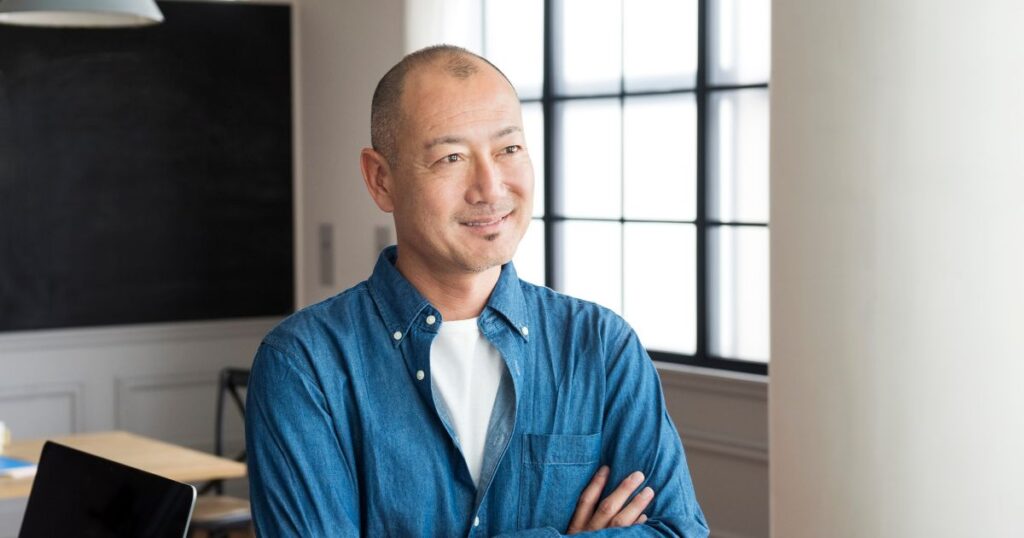Behind the Bars: A Glimpse into the Life of a Corrections Officer
Table of Contents
Key Summary Table: Corrections Officer
| Key Responsibilities | Skills Required | Education Needed |
|---|---|---|
| Conducting roll calls and cell inspections | Attention to detail | High school diploma or equivalent |
| Conflict resolution | Strong communication skills | Some roles may require a degree in criminal justice or related field |
| Escorting inmates | Physical fitness | On-the-job training is typically provided |
| Maintaining records | Emotional resilience | Some states may require certification |
Ever wondered who keeps the wheels of justice turning behind prison walls? Enter the Corrections Officer, a role as complex as a chess game and as crucial as a goalkeeper in a football match. Stick around to uncover the realities of this fascinating career path.

Introduction
Being a law student is a bit like being a detective. You’re constantly piecing together information, trying to make sense of complex concepts, and always learning something new. And one of the most intriguing roles I’ve come across in my studies is that of a Corrections Officer. It’s a role that’s often misunderstood, shrouded in a veil of mystery and misconception. But today, we’re going to pull back that veil and take a closer look.
he role of a Corrections Officer is as complex as it is crucial. They are the gatekeepers of justice.
Now, before we dive in, let me just say this: I’m not here to tell you what career path to choose. I’m just sharing my own journey of discovery and learning. And who knows? Maybe you’ll find it as fascinating as I do. So, buckle up, and let’s embark on this journey together.
Top 5 Qualities of a Successful Corrections Officer
- Attention to detail
- Strong communication skills
- Physical fitness
- Emotional resilience
- Fairness and integrity

Corrections Officer: The Gatekeepers of Justice
Imagine being the human embodiment of a revolving door, the one that stands between freedom and confinement. That’s a Corrections Officer for you. They’re like the goalkeepers in the soccer game of justice, keeping an eye on the ball, always ready to make the save.
Now, let’s get into the nitty-gritty. What does a day look like for a Corrections Officer? Well, it’s not all about jangling keys and stern looks. It’s about maintaining order, ensuring safety, and sometimes, being a listening ear. It’s about walking the tightrope between authority and empathy.
Being a Corrections Officer is like being a lighthouse in a storm. They guide, they protect, and they stand firm in the face of adversity. Their role is not just about enforcing rules, but also about understanding the people they work with. It’s about seeing the human behind the inmate, about recognizing that everyone has a story.
What makes a good Corrections Officer, you ask? Well, it’s a cocktail of qualities. A dash of discipline, a sprinkle of patience, and a big dollop of resilience. It’s not a job for the faint-hearted, but for those who can stand tall in the face of adversity.
It’s also about having a keen sense of observation, a knack for problem-solving, and a deep understanding of human behavior. It’s about being able to read people, to anticipate potential issues, and to handle conflicts with tact and diplomacy. In short, it’s about being a pillar of strength in a world of chaos.
3 Common Misconceptions About Corrections Officers
- They are just “prison guards”: Corrections Officers have a wide range of responsibilities beyond just guarding inmates.
- They don’t need any special skills or education: Corrections Officers require a specific set of skills and often need formal education or training.
- They don’t have any influence on policy or reform: Corrections Officers can play a significant role in shaping policy and reform based on their firsthand experiences.

Skills and Education: The Building Blocks of a Corrections Officer
| Skill | Why It’s Important | Education | Why It’s Important |
|---|---|---|---|
| Emotional resilience | Handle high-stress situations | High school diploma or equivalent | Minimum requirement |
| Physical fitness | Ensure safety and security | Degree in criminal justice or related field | Preferred for some roles |
So, you’re probably wondering, “What does it take to become a Corrections Officer?” Well, it’s not like baking a cake, but there are some ingredients you’ll need. A bachelor’s degree in criminal justice or a related field is a good start. But education is just one piece of the puzzle.
Being a Corrections Officer is like playing a game of chess. You need strategy, foresight, and the ability to make quick decisions. You need to be firm yet fair, strict yet understanding. It’s a delicate balance, like walking on a tightrope.
But it’s not just about having the right skills. It’s also about having the right mindset. It’s about being able to stay calm under pressure, to handle stressful situations with grace, and to treat everyone with respect and dignity. It’s about having a thick skin, but also a big heart.
And how does a Corrections Officer fit into the grand scheme of the criminal justice system? Think of them as a cog in a well-oiled machine. They play a crucial role in maintaining order and ensuring justice is served. They are the ones who ensure that the wheels of justice keep turning, smoothly and efficiently.
But remember, being a Corrections Officer is not just a job. It’s a calling. It’s a commitment to uphold the law, to protect and serve, and to make a difference in people’s lives. And that, my friends, is something that no amount of education or skills can teach. It’s something that comes from within.

A Day in the Life of a Corrections Officer
| Time of Day | Task |
|---|---|
| Morning | Conduct roll call and cell inspections |
| Midday | Escort inmates to meals and recreational activities |
| Afternoon | Handle any conflicts or issues that arise |
| Evening | Conduct final headcount and complete paperwork |
A day in the life of a Corrections Officer is anything but ordinary. Picture this: the sun hasn’t even peeked over the horizon, and you’re already at work, ready to start your shift. The first order of business? Roll call. It’s like taking attendance in school, but instead of students, you’re accounting for inmates.
Once roll call is done, it’s time for cell inspections. This isn’t a casual stroll through a hotel corridor. You’re checking for contraband, ensuring that rules are being followed, and that the living conditions are up to standard. It’s a task that requires a keen eye and attention to detail.
Then comes one of the most challenging parts of the job: conflict resolution. In a prison environment, tensions can run high, and conflicts can escalate quickly. As a Corrections Officer, you’re often the mediator, the peacekeeper. You’re the one who steps in to diffuse situations, using your training to handle conflicts effectively and safely.
Throughout the day, you’re also responsible for escorting inmates. Whether it’s to the dining hall for meals, to the yard for recreational time, or to visitation rooms to meet with family or legal counsel, you’re the guide, ensuring that inmates get to where they need to be safely and on time.
In between these tasks, there’s paperwork. Incident reports, log entries, inmate records – these all need to be meticulously maintained. It’s not the most glamorous part of the job, but it’s crucial for maintaining order and accountability.
Finally, as the day winds down, it’s time for the final headcount, ensuring all inmates are accounted for before you can end your shift. It’s a long day, filled with challenges and responsibilities. But as a Corrections Officer, it’s all in a day’s work.

The Role of a Corrections Officer in Policy and Reform
| Policy/Reform | Impact of Corrections Officer |
|---|---|
| Rehabilitation programs | Advocate for more funding based on observed success |
| Prison conditions | Provide firsthand accounts to influence policy changes |
Now, let’s delve into a less-known aspect of a Corrections Officer’s role – their influence on policy and reform. Imagine being a catalyst for change, a voice for those who often go unheard. That’s a Corrections Officer in the realm of policy and reform.
Corrections Officers are often on the front lines, witnessing firsthand the issues that plague the prison system. They see the effects of overcrowding, the impact of inadequate resources, and the consequences of outdated policies. Their experiences and insights can be invaluable in shaping reforms and driving change.
For instance, a Corrections Officer might notice that a particular rehabilitation program is having a positive impact on inmates, leading to lower rates of recidivism. They could then advocate for more funding for such programs, influencing policy decisions that could ultimately lead to better outcomes for inmates and society as a whole.
But it’s not just about influencing policy. It’s also about implementing it. When new policies or reforms are introduced, Corrections Officers are often responsible for ensuring they are implemented effectively. They’re the ones on the ground, turning policy into practice.
However, the role of a Corrections Officer in policy and reform is not without its challenges. It requires a deep understanding of the prison system, a commitment to justice, and the courage to speak up for what’s right. But for those who rise to the challenge, it’s an opportunity to make a real difference, to be a force for positive change in the world of criminal justice.

Conclusion: The Intricate Web of Criminal Justice
As we wrap up our exploration of the role of a Corrections Officer, let’s take a moment to reflect on the intricate web that is the criminal justice system. It’s like a complex puzzle, with each piece playing a crucial role. And Corrections Officers? They’re a key piece of that puzzle.
I’ve come to realize that understanding these roles is not just about making career decisions. It’s about gaining a deeper understanding of the system that I’m studying, the system that I might one day be a part of. It’s about seeing the human side of justice, the faces behind the roles.
And what about the role of a Corrections Officer? Well, it’s not just a job. It’s a calling. It’s a commitment to uphold the law, to maintain order, and to make a difference in people’s lives. It’s a role that requires courage, resilience, and a deep sense of duty.
This post is part of my Criminal Justice series in the Law Degree section of my University Life category.
Other posts of interest: Criminologist: The Unseen Detective of the Criminal Justice World and The Balancing Act of a Probation Officer
Disclaimer: The information provided in this blog post is based on my personal experiences and research as a first-year law student. It is intended for informational purposes only and should not be used as a substitute for professional advice.
Frequently Asked Questions
What does a Corrections Officer do?
A Corrections Officer is responsible for maintaining order and safety within a prison or jail. Their duties include supervising inmates, conducting cell inspections, resolving conflicts, and implementing rehabilitation programs.
What skills are needed to become a Corrections Officer?
Key skills for a Corrections Officer include attention to detail, strong communication skills, physical fitness, and emotional resilience. They also need to be fair, unbiased, and able to handle high-stress situations.
What education is required to become a Corrections Officer?
The minimum education requirement for a Corrections Officer is typically a high school diploma or equivalent. However, some roles may require a degree in criminal justice or a related field. On-the-job training is also usually provided.
How does a Corrections Officer differ from a Criminal Investigator?
While both roles are part of the criminal justice system, they have different responsibilities. A Corrections Officer maintains order within a prison and supervises inmates, while a Criminal Investigator works on solving crimes and gathering evidence.
Can a Corrections Officer influence policy and reform?
Yes, Corrections Officers can play a significant role in shaping policy and reform. They have firsthand experience of the issues within the prison system and can advocate for changes based on their observations and experiences.
